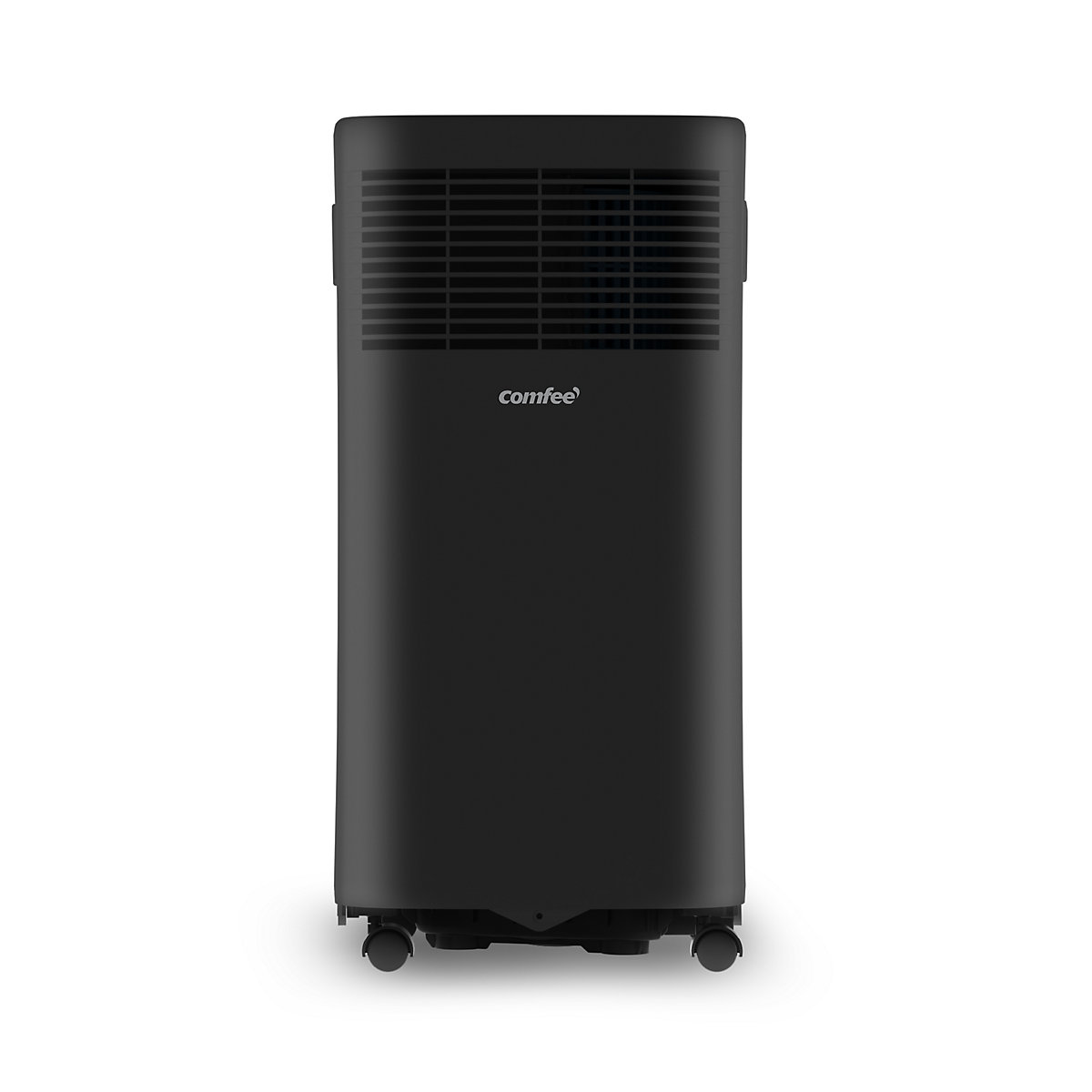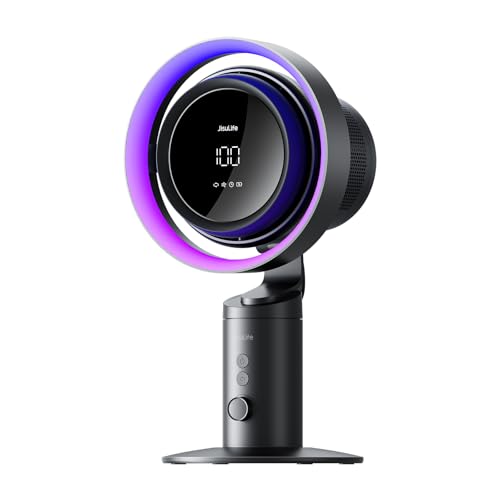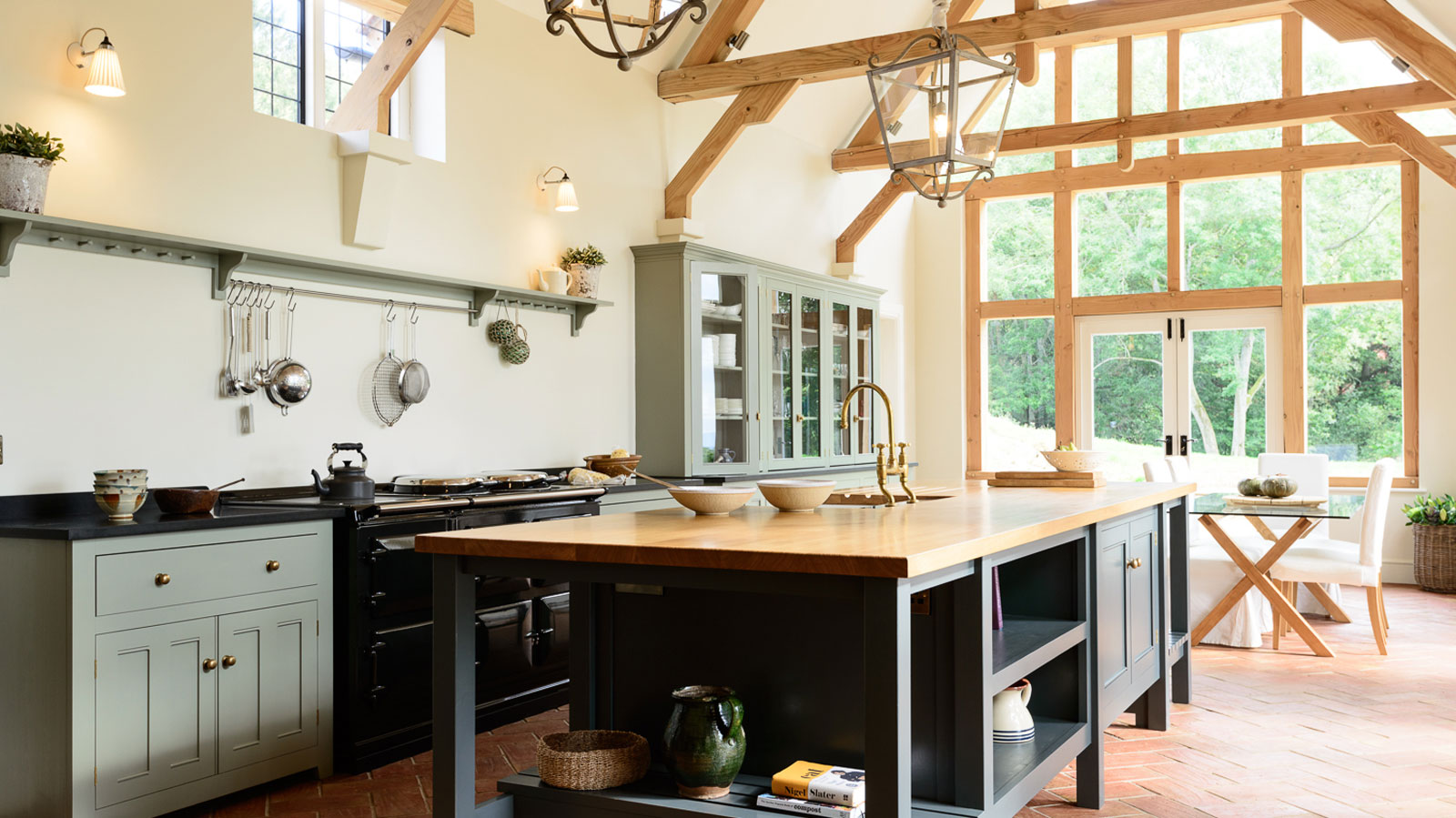Wondering whether to splash out on an air conditioning unit or fan? Here's how they rack up so you can confidently shop
Wondering if you really need air con or if a fan can do the job just as well? We weigh up air con vs fans so you can stay fresh and cool when the sun shines
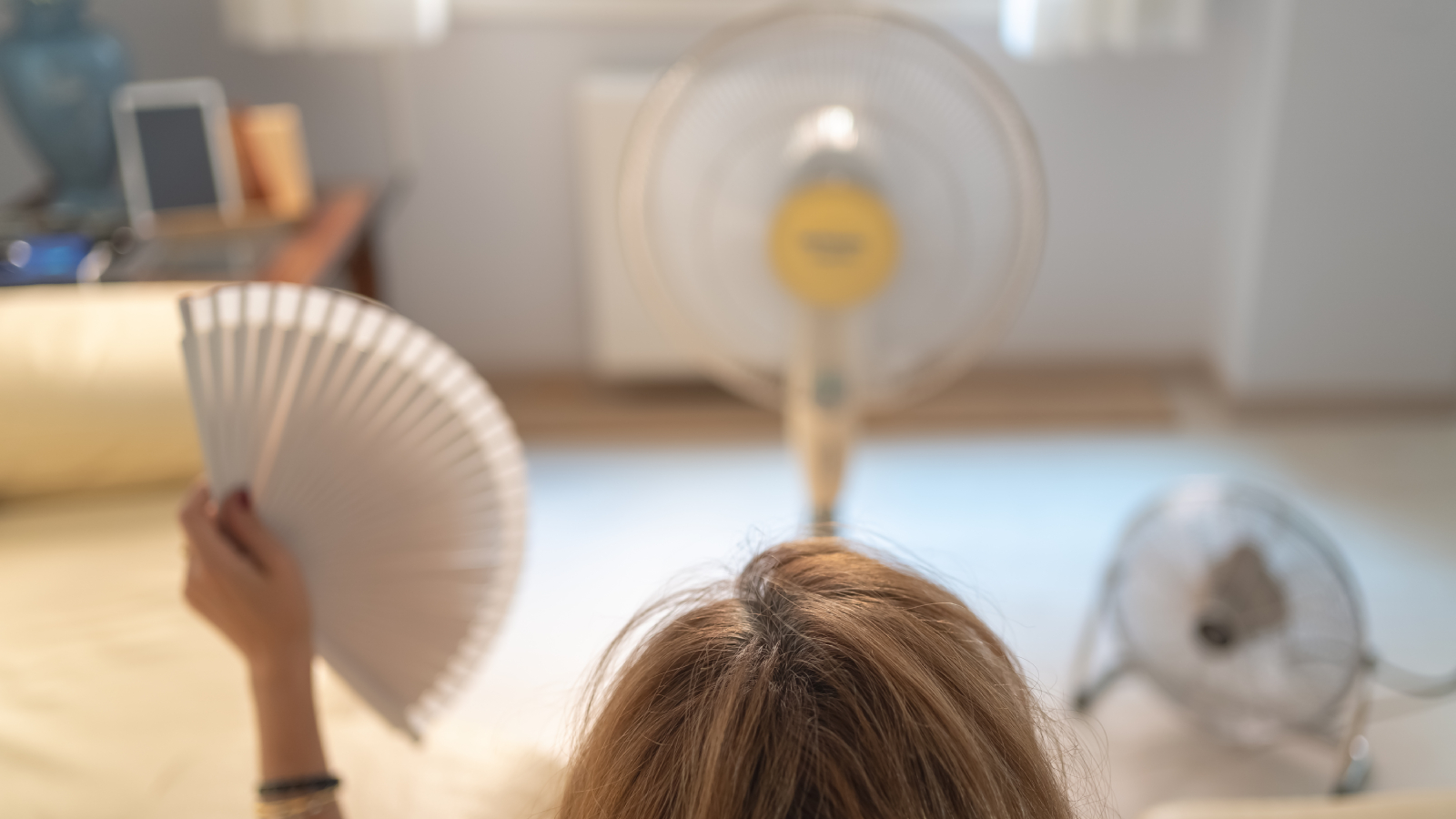
Bring your dream home to life with expert advice, how to guides and design inspiration. Sign up for our newsletter and get two free tickets to a Homebuilding & Renovating Show near you.
You are now subscribed
Your newsletter sign-up was successful
Weighing up the differences in air conditioning vs fans will generally come down to looking at three main factors: performance, appearance and costs.
And while each appliance will have its own merits in different categories, and perhaps one category will be more important to you than the others, choosing the right air conditioning product is becoming even more important with heatwaves making a more regular appearance.
In this article, we break down the pros and cons of air conditioning vs fans so you can make the right purchasing choice.
1. Air conditioning vs fans: appearance
If you're particularly house proud and prefer your appliances and tech to be out of sight, choosing the right type of air conditioning will involve weighing up how the different systems will impact on the overall look of your home.
And while fixed air con systems with wall or ceiling mounted fans or vents can avoid the look of bulky appliances cluttering up your floor plan, if air conditioning costs are too prohibitive, a portable air conditioning unit may well be your only option.
Similar to the appearance of some of the best dehumidifiers, (a function also offered by many portable air conditioning units), they are nonetheless not the most attractive of home appliances – particularly as they can't be integrated.
Add to this the the fact a flexible section of ducting has to run from the back of the machine to an open window, and it could be a step too far for those of you with a keen eye for aesthetics.
Bring your dream home to life with expert advice, how to guides and design inspiration. Sign up for our newsletter and get two free tickets to a Homebuilding & Renovating Show near you.
That said, although some models look more like commercial machines than others, their plain white or black exterior does mean they can blend more easily into the background than first impressions might suggest.
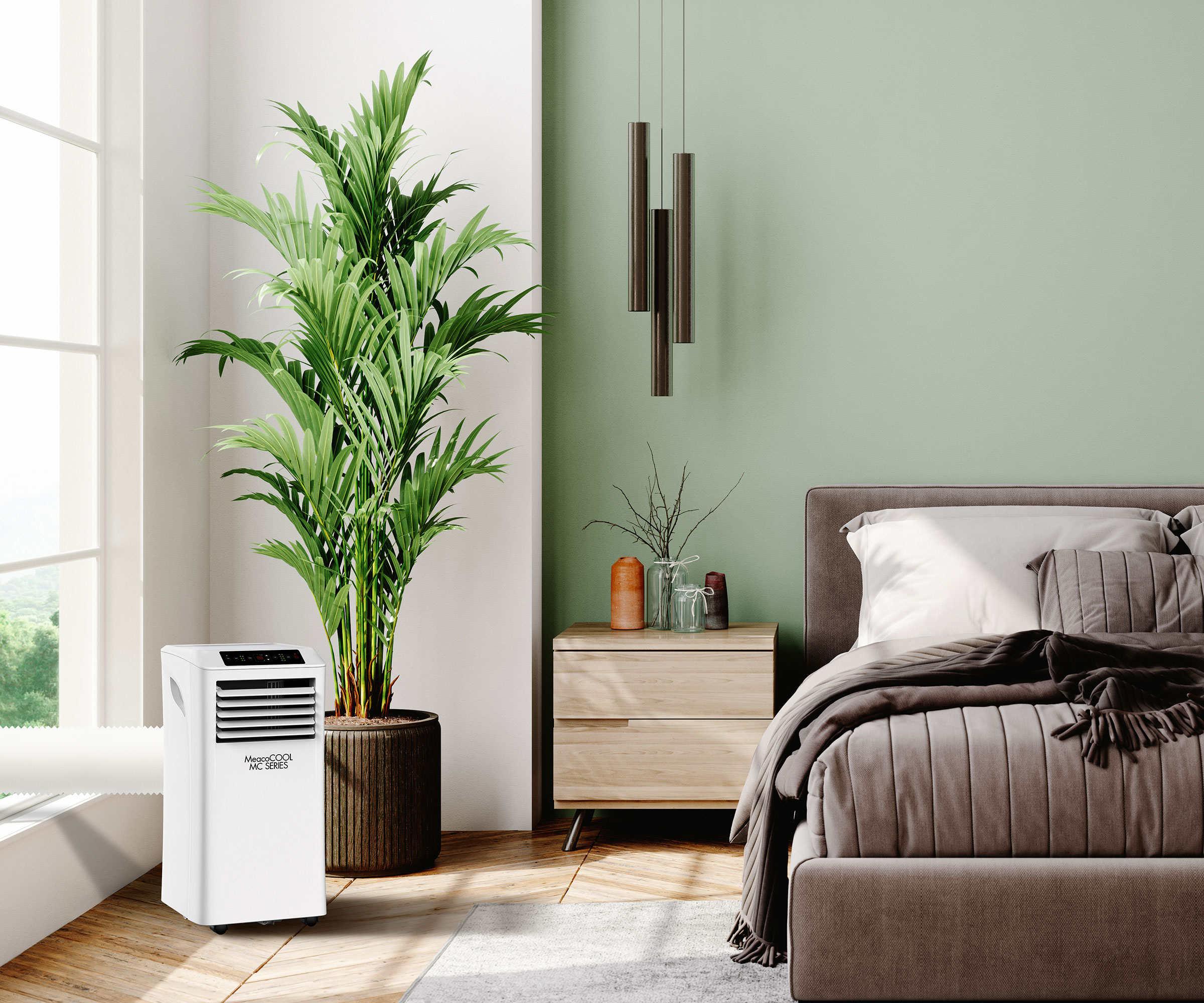
So what about fans? There's no denying their appearance has received a general makeover in recent years, with the likes of Meaco, Shark and Dyson all pushing the boundaries of design, producing models such as the MeacoFan Sefte 8" Rechargeable Fan , and the Dyson Hot & Cool Jet Focus, both available from Amazon, that are a far cry from the clunky pedestal fans of old.
Sleeker design and smaller foot print models such as tower or blade fans can all sit more comfortably in contemporary homes, and with table top fans also receiving a similar makeover, you can pop them on tables or shelving so they can't as in obtrusive as floor standing products.
But, with air conditioning and fans both needing to fulfil the objective of cooling, it's the category of performance that should really be the strongest influence in choosing between an air conditioning unit vs a fan.
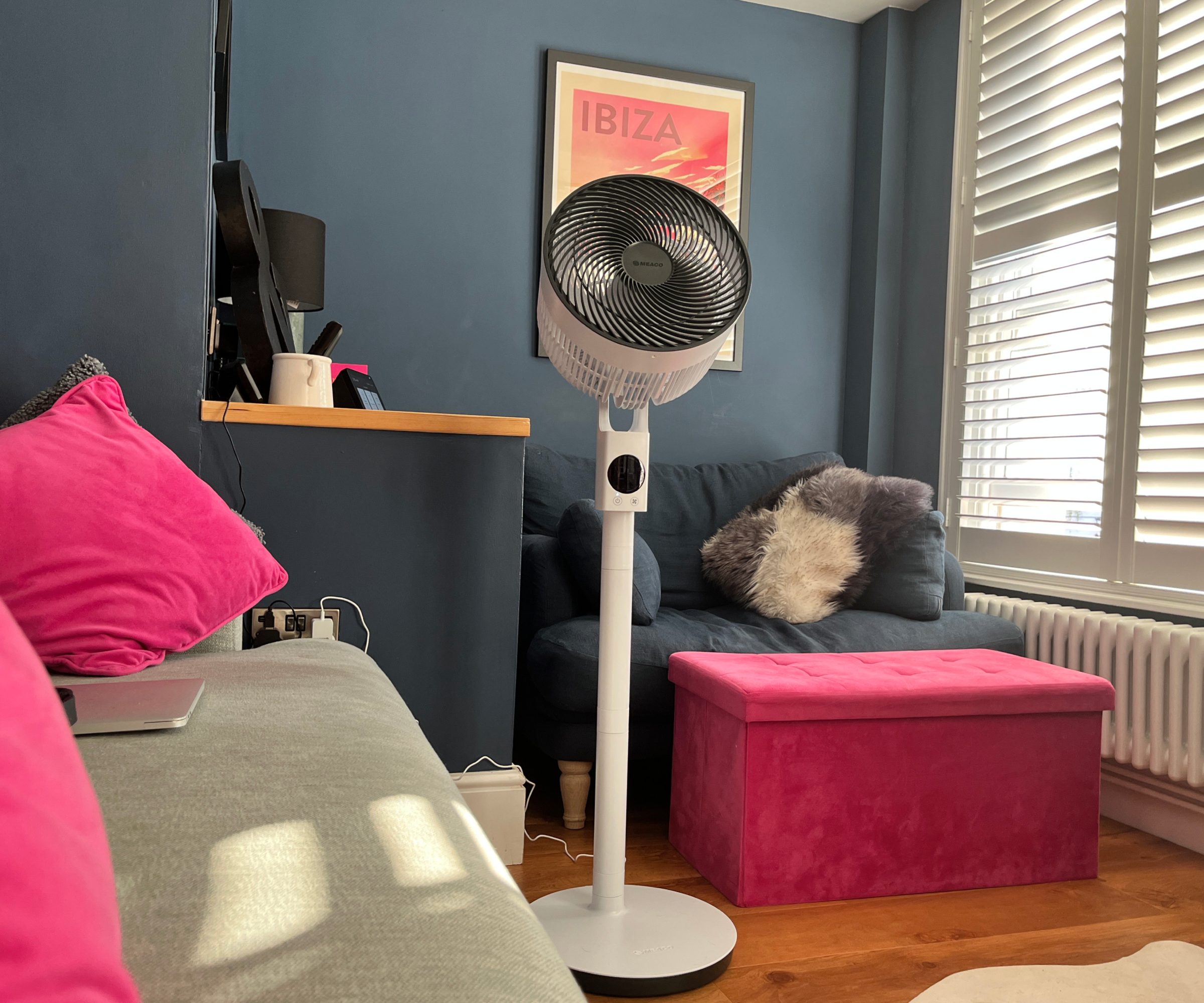
2. Air conditioning vs fan: performance
It's in the category of performance where there are even more marked differences between air conditioning vs fans.
"A fan doesn’t cool the room, it cools you," explains Hamid Salimi, residential product manager at Daikin UK. "By boosting airflow, a fan helps your body release heat and evaporate sweat, making you feel cooler."
Or, to put it more simply, "fans only circulate air whereas air conditioners cool and dehumidify the same air," adds Katie Lilywhite, air treatment expert at AO.com.
"What many people don’t realise is air conditioning is the same environmentally friendly technology as a heat pump and works much like a fridge, transferring energy using a refrigerant cycle," says Hamid.
"Unlike fans, an air conditioning unit cools the entire space by using refrigerant to absorb heat through evaporation and release it through condensation. Some fixed air conditioning systems such as air to air heat pumps can also provide much more than cooling," he expands.
"In heating mode, air conditioning units absorb energy from the outdoor air and release it as heat through the indoor unit. In cooling mode, the process is reversed: heat is extracted from inside your home and released outside.
Of course, there are ways to make a fan feel like it's moving cooler air around the room, such as placing an bowl of ice in front of it and making sure you've taken on board all the ways to make a room cooler, including keeping windows and curtains closed, so that the air your fan circulates is cooler than the air outdoors.
But, fans will never produce cold air, unless you opt for something in-between such as an air cooler which draws in hot air, blows it over cold water soaked pads and then returns this cooled air into the room.


Hamid has worked with Daikin for over 13 years in various roles such as product applications, HVAC design and currently as a Product Manager leading a team of product specialists covering all aspects of residential renewable heating and cooling.

Katie is one of the resident experts at AO.com, covering a multitude of appliances including air quality products, health and beauty and products relating to homes and gardens.
3. Air conditioning unit vs fans: cost
While there is a vast difference between fixed air conditioning costs, both in terms of how much air conditioning installation costs and the running costs of a portable air conditioning unit vs a fixed system, comparing air conditioning vs fan costs is a little more complex.
Having paid both budget and premium prices for fans, it does seem to be you get what you pay for. I recently reviewed the MeacoFan Sefte 10" Pedestal Fan which costs around £180. Was it worth the price? Absolutely. It ticked plenty of boxes in terms of appearance and performance and I've no doubt it will last – unlike the cheap and cheerful budget pedestal fans I've panic bought in the past that were either unbearably noisy or only lasted one season.
Purchasing costs for air conditioning vs fans can therefore seem to vary wildly, with some budget fans coming in under £30, while portable air conditioning units can cost upwards from around £250. However, if you consider a more premium fan and compare this with the cost of a good quality air conditioner, the gap starts to shrink.
Running costs of each type again vary, but understandably so given a portable unit is cooling and distributing that air, whereas a fan is only moving the air that exists around the room.
An air con unit designed to heat a medium sized room, such as this Delonghi Pinguino PAC EL110 from the Air Con Centre, will cost around 28p per hour to run compared to the MeacoFan Sefte which my smart meter said was only costing 1p per hour.
Of course, if the air is being more effectively cooled, you may run the air con unit for less time than a fan, but it's never going to be as cheap as a fan in the long run.
Where to buy air con units and fans
The recent spate of heatwaves means some suppliers are already showing out of stock listings on many items. However, there are still products available at Amazon, B&Q, The Air Con Centre and AO.com, to name a few.
Katie Lilywhite's final tips for choosing between portable air conditioning vs fans? It's as you'd expect with one additional suggestion if you have the space and budget.
“Fans and air conditioners both have their place and ultimately it comes down to how hot and bothered you're feeling," she says.
"Some of the pros of fans are they’re cheap, cheap to run and much quieter than an air conditioner. However, for sheer power and performance look no further than an air conditioner," she advises.
"But," shares Katie, "a little-known fact is that when you run the two together, you’ll enjoy the best of both worlds. Fans are great for quick relief in well-ventilated spaces, and when combined with an air conditioner, this will result in a lovely cool breeze being blown around the whole room.”
Off to shop? Make sure you've worked out what size air conditioning unit you need before you press buy, and understand what are places never to put air conditioning which includes tips for the best location for your portable air conditioning unit.

Sarah is Homebuilding & Renovating’s Assistant Editor and joined the team in 2024. An established homes and interiors writer, Sarah has renovated and extended a number of properties, including a listing building and renovation project that featured on Grand Designs. Although she said she would never buy a listed property again, she has recently purchased a Grade II listed apartment. As it had already been professionally renovated, she has instead set her sights on tackling some changes to improve the building’s energy efficiency, as well as adding some personal touches to the interior.
